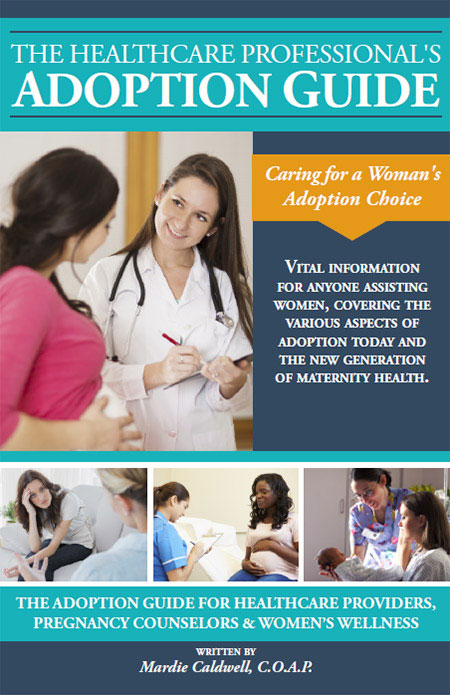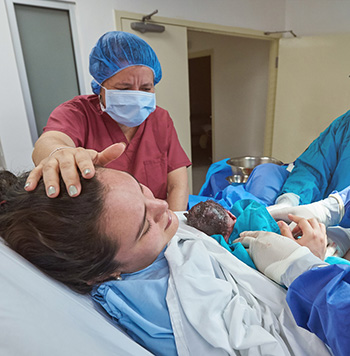Healthcare Professional’s Guide to Adoption

- The steps to a successful adoption plan.
- Positive adoption language and tips for supporting birth parents.
- How to avoid putting you, your faculty, or your client at risk.
- What to do when a woman chooses adoption at the last minute.
- 24-hour professional adoption resources for any situation.
The Healthcare Professional’s Guide to Adoption is used by many facilities to provide adoption in-service training to nurses, social workers, and other staff members. These booklets are provided professionally in conjunction with the free adoption training by the National Adoption Hotline, currently available throughout the USA.
These guides are affordable and easy to read. They are also thought-provoking for medical staff and medical facility administrators who may not have thought through the hospital policies in regard to adoption.
An excerpt from The Healthcare Professional’s Adoption Guide
It’s Never Too Late for Adoption
It’s never too late for a mother to choose adoption for a child. Even when she is admitted to a hospital in labor, a pregnant woman with no previous adoption plan may voice her wishes to place her child for adoption. She may call an adoption professional for the first time while in labor or after her baby is born.
A mother has the same rights and choices available through adoption whether she beings her plan before or after birth. She can:
- Choose the adoptive parents, if desired.
- Speak with them and meet before the adoption.
- Determine the amount of contact she’d like after the adoption takes place.
- Ask for counseling or other assistance.
There is 24-hour professional adoption assistance available to help with last-minute adoption decisions. Call the National Adoption Hotline at 1-800-923-6602 for assistance. Adoptive families can be at the hospital within hours of the baby’s birth. The birth mother does not have to travel to meet the adoptive family; it is their responsibility to come to her.
An adoption professional will coordinate the legal aspect of the adoption for the patient. If a patient has pregnancy-related expenses, financial assistance can be arranged, if allowable by state law.
Women choosing adoption will be provided with paperwork from the adoption professional, including a HIPAA-compliant medical release form to authorize health information to be disclosed to the adoption professional. It is important that the patient’s and baby’s health background by gathered, so adoptive parents are aware of the child’s medical history.

